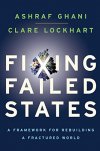-
Sign up or login, and you'll have full access to opportunities of forum.
You are using an out of date browser. It may not display this or other websites correctly.
You should upgrade or use an alternative browser.
You should upgrade or use an alternative browser.
Milestones
- Thread starter admihoek
- Start date

Frank Petrexa
Tribune
Certainly the bullet that killed the Austrian Archduke "changed the world forever".'One man can change the world with a bullet in the right place.' -- Lindsay Anderson's If... (1968).
Twenty years ago today, on 11 September 2001, nineteen men using planes for bullets pretty much proved the old film true.
I can't think of anything more trite to type now than 'always remember'.
It's trite but true.
Because there was a restrained, targeted reaction (leaving aside the invasion of Iraq, which in the context of 9/11 was pointless and ended up being a gift to Iran), we didn't have something like World War I. Terrorism is harder, tools to combat it are much better, bin Laden is dead, and "al Zawhari" is marginalized and has been in hiding for years.
Frank Petrexa
Tribune
I'm not sure what the "nukes" would have accomplished--a lot more sympathy for the casualties and by association the terrorists, a lot less sympathy for the United States. Maybe it would have restrained Pakistan for a time (the real reason Afghanistan is a "failed state" and will remain so), but you can't fight international terrorists with nuclear bombs. You will just radicalize "non-state actors" somewhere else. Israel has responded to Palestinian terror with massive force for years, and that hasn't stopped it. And there is a real, physical "fallout" from using nuclear weapons which is hard to control and affects lots of places outside the target. It may be less satisfying, but it is really a policing issue. There are a lot of terrorists serving life in American prisons who will never get out and who have no "followers" and no "glory" any more.I for one fully expected the US to nuke Afghanistan right off the face of the planet after 9/11
Let's hope that the current situation out there doesn't make them regret their restraint, though I cannot forsee any good coming of yet another failed state
wulf
God-Emperor
This isn't the first time our enemy wore us down and waited us out. A previous adventure in Southeast Asia ended the same way. I had a personal stake in that debacle.
When we went into Afghanistan I actually thought we would be there long enough to destroy the Taliban and give the Afghans the means to keep them out, because I thought our government had learned it's lesson from Vietnam. But after a few years it was apparent that the Afghans weren't up to job, and 20 years later, they still weren't.
We cannot help, or save, or rebuild a country who's people are not willing to fight & die for it after we leave. I sincerely hope it doesn't take a third war for us to get that through our heads.
When we went into Afghanistan I actually thought we would be there long enough to destroy the Taliban and give the Afghans the means to keep them out, because I thought our government had learned it's lesson from Vietnam. But after a few years it was apparent that the Afghans weren't up to job, and 20 years later, they still weren't.
We cannot help, or save, or rebuild a country who's people are not willing to fight & die for it after we leave. I sincerely hope it doesn't take a third war for us to get that through our heads.
windar
Teller of Tales
The departure of President Ghani in a helicopter stuffed with cash symbolized the entire war. Even if those stories are exaggerated you can be sure he has money in one offshore haven or another as did his predecessor, whose brother was a big-time opium baron. There is a neighborhood called Sherpur; it's the Beverly Hills of Kabul (or was). You can guess how those government officials built those on salaries of $2000/month...But after a few years it was apparent that the Afghans weren't up to job, and 20 years later, they still weren't.

For rent: 52-room villas in the Beverly Hills of Kabul
For a monthly rental of Dh92,000-Dh220,000, the wealthy enclave of Sherpur could be your home
But, the corruption wasn't only on the Afghan side. All those defense contractors who lost business when the Cold War ended were eager to jump on the Afghanistan/Iraq bandwagon. For 20 years, they maintained the planes for the Afghan Air Force and in all that time no one trained Afghans to do it, so that when the contractors left they could still fly? Your tax dollars at work...
Gibbs505
SERVORUM DOMITOR
An interesting read, I have a translation!
malins
Stumbling Seeker
Darkprincess69
High Priestess of Slaanesh
It should be titled "Fixing The State Of My Own Personal Finances"Hey let's not talk him down. He has a book called "Fixing failed states"; rumor has it that the next edition comes with a methodology update...
View attachment 1059995

Darkprincess69
High Priestess of Slaanesh
I fear that any future conflicts will see America as a weak, innefectual country with a leadership that's focussed more on identity political and wokeness than it is on protecting world freedom, while its enemies grow stronger every day.We cannot help, or save, or rebuild a country who's people are not willing to fight & die for it after we leave. I sincerely hope it doesn't take a third war for us to get that through our heads.
China is training its forces for war, while the US is currently training its forces in political correctness and using the right pronouns

God Bless America?
More like God Help America (and everybody else because if America falls, we will all fall with it)
The current leadership in the western world as a whole (not just the US) reminds me a lot of Rimmer in the classic Red Dwarf episode "Polymorph" when he chairs a meeting of the crew on how to deal with an alien aggressor;
Only not as funny

I think of it as a medieval Crux Forums -An interesting read, I have a translation!
'che la divina giustizia li sprona
si che la tema si volve in disio'
for heavenly justice so spurs them on
that what they fear is turned into desire!
windar
Teller of Tales
Oh, so the cash in the helicopter was book royalties...Hey let's not talk him down. He has a book called "Fixing failed states"; rumor has it that the next edition comes with a methodology update...
View attachment 1059995
wulf
God-Emperor
Yep.... Deja Vu all over again.The departure of President Ghani in a helicopter stuffed with cash symbolized the entire war. Even if those stories are exaggerated you can be sure he has money in one offshore haven or another as did his predecessor, whose brother was a big-time opium baron. There is a neighborhood called Sherpur; it's the Beverly Hills of Kabul (or was). You can guess how those government officials built those on salaries of $2000/month...

For rent: 52-room villas in the Beverly Hills of Kabul
For a monthly rental of Dh92,000-Dh220,000, the wealthy enclave of Sherpur could be your homewww.thenationalnews.com
But, the corruption wasn't only on the Afghan side. All those defense contractors who lost business when the Cold War ended were eager to jump on the Afghanistan/Iraq bandwagon. For 20 years, they maintained the planes for the Afghan Air Force and in all that time no one trained Afghans to do it, so that when the contractors left they could still fly? Your tax dollars at work...
Frank Petrexa
Tribune
You have to hope the man fared better than Boniface VIII. I assume he did.
Frank Petrexa
Tribune
China, of course, is not occupying anything. It is scared to death about what North Korea will do--miscalculate and go over a red line. The Korean War certainly wasn't an American "victory", but Chinese casualties were huge--Mao threw away all the loyal soldiers who had put him into power. Then he starved what was left in the "Great Leap Forward".I fear that any future conflicts will see America as a weak, innefectual country with a leadership that's focussed more on identity political and wokeness than it is on protecting world freedom, while its enemies grow stronger every day.
China is training its forces for war, while the US is currently training its forces in political correctness and using the right pronouns
God Bless America?
More like God Help America (and everybody else because if America falls, we will all fall with it)
The current leadership in the western world as a whole (not just the US) reminds me a lot of Rimmer in the classic Red Dwarf episode "Polymorph" when he chairs a meeting of the crew on how to deal with an alien aggressor;
Only not as funny
It is worth noting that the initial American response in Afghanistan was very effective--the special forces and their technology worked wonders. bin Laden is dead because the United States used brains and focused on a do-able objective. The problem was indeed "nation-building". Someone wrote a column in the New York Times saying that the proper response would have been to arm the various factions in Afghanistan (and there are lots of them--the Taliban won't have it easy) and let them fight it out, ravage the country. I guess I am not so keen on that solution either. The trick is to do the minimum that has to be done and get the hell out, not strut around on an aircraft carrier saying "Mission Accomplished".
There is a book called "Unconditional" about the policy of demanding unconditional surrender from Nazi Germany and Japan. The original impetus was to prevent a future fascist government from claiming a "Dolchstoss" and re-arming as Hitler did to reclaim past glory. I agree, but look what it cost.
The US used the atomic bomb on Japan. Before that, LeMay firebombed Tokyo and other cities, and it was worse than even Hamburg or Dresden. The US was reading the Japanese diplomatic code, especially the dispatches to and from the Japanese embassy in Moscow, and knew that the Army and Navy would never agree to unconditional surrender without being forced to. Okinawa and Iwo Jima were designed to be blood baths--the Japanese Army would dig in and fight to the last man--to encourage "war weariness" in the US. (The body of the Japanese general who designed the defenses at Iwo Jima was never found.) Even as the situation in Japan was hopeless, the army was pushing a "peace proposal": (1) the government (couched as the Emporer) would be retained, (2) the army would surrender its arms to its own officers, (3) the Japanese would conduct all war crimes trials--tell that to the people in Nanking, and (4) the occupation would be limited to "isolated points". Truman was tough enough and smart enough to look to the future. The bombs were doled out. Kyoto, the ancient cultural center, was not bombed at all. The "Emperor question" was finessed. Even so, army renegades stormed the Imperial Palace (and killed one of the Emperor's personal household) looking for his recorded surrender address to destroy it. The head of the army committed suicide. It is true that the US Navy made it a point to sink every Imperial Navy ship, even those sitting at anchor without fuel, but in the end there was restraint.
Again, the cost to both sides was enormous. Simple boodlust would have killed many more Japanese, and an American landing would have been opposed with suicide charges of civilians and dug-in military strong points which would have had to be burned out or blown up, and would have lead to enormous American casualties as well.
There is a book by an English professor named Fussel, who came back from the war in Europe wounded and angry--real PTSD. It's called "Thank God for the Atomic Bomb". He didn't have to fight in Japan because of the bomb. You can't argue with his thesis. But he has another book called "Wartime". It tells a story about a Marine who sent the skull of a Japanese soldier home to his girlfriend (there's a picture which was published in "Look" magazine). "I do not mean to say that at this point the United States Marine Corps had sunk to the level of savagery of the Japanese Army--that would come later." (He gives an address of a Buddhist monk in Japan where people can send any "souvenirs" they might have for proper burial.) The war took over Fussel's life, and the lives of many more veterans.
One should do only what is necessary and try to be objective about "necessary". Genocide really doesn't work in the long run. The Nazis tried it in Russia, and lots of people lined up to fight for Stalin, the most murderous tyrant the world has seen.
Darkprincess69
High Priestess of Slaanesh
Marcius
Tribune
On hundred years ago today, on 15 September 1921, the only man to have ever been a Baltic German baron (say hello to the village whipping posts!), a White Russian general and a Mongolian khan faced the Soviet Russian firing squad.
Roman von Ungern-Sternberg lived his own Heart of Darkness-y life story in the wildest way, leaving alive few or perhaps none Reds or Jews he encountered, getting a certain reputation among the nomads (something of a war god) and becoming an unacknowledged founding father of the modern Mongolian state. At last his soldiers had had enough, the Soviets captured the Mad Baron Ungern and had him shot after a show trial.
Sometimes a show trial = a fair trial.
Roman von Ungern-Sternberg lived his own Heart of Darkness-y life story in the wildest way, leaving alive few or perhaps none Reds or Jews he encountered, getting a certain reputation among the nomads (something of a war god) and becoming an unacknowledged founding father of the modern Mongolian state. At last his soldiers had had enough, the Soviets captured the Mad Baron Ungern and had him shot after a show trial.
Sometimes a show trial = a fair trial.
Frank Petrexa
Tribune
I always liked the exchange between a bishop and Owen, "Darwin's Bulldog".September 15 1835, Charles Darwin and the crew of HMS Beagle reach the Galapagos Islands.
And the world changed!!
"What have your researches told you about the Creator?"
"An inordinate fondness for beetles."






